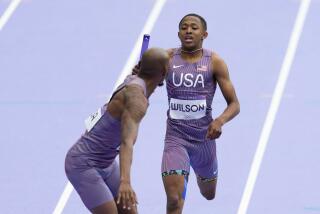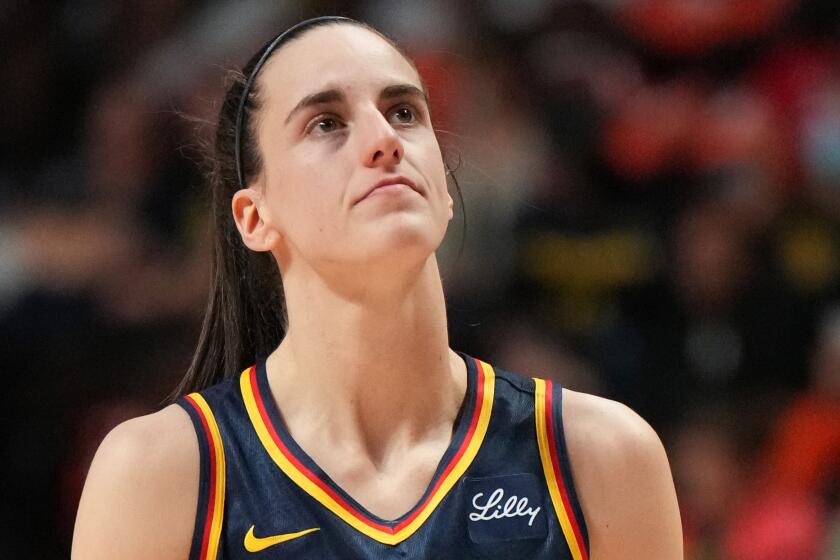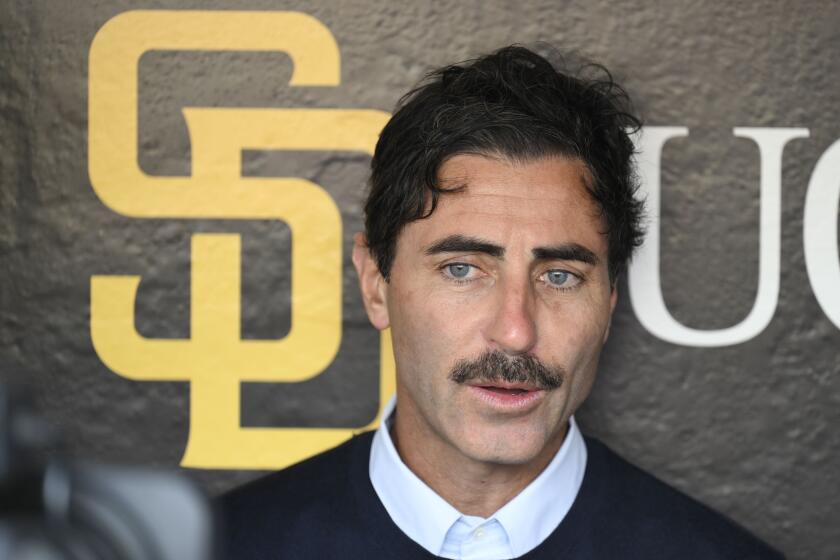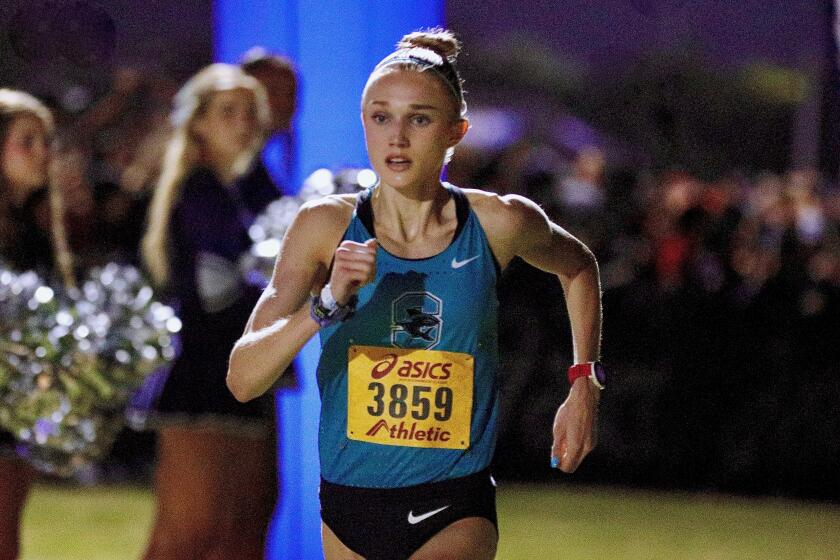Allyson Felix shows staying power at U.S. track championships
Allyson Felix is part of what can be loosely called the Athens Generation in U.S. track, the athletes who emerged as champions at the 2004 Athens Olympics or the seasons between then and the 2008 Beijing Summer Games.
A year before the 2012 Olympics, many of those athletes are struggling to remain healthy and fast in a single event. Felix, meanwhile, simply speeds along at a pace that, if not yet historically breathtaking at any one distance, has allowed her to maintain an unmatched level in several events.
When she beat the swirling wind and the field to win Saturday’s 400 meters at the U.S. Championships, Felix became the first woman to take national titles in the 100 (2010), 200 (five times) and the 400. She also is the lone member of the Athens Generation to be performing as impressively this season as she had in making her first big impact on the world scene, an Olympic silver medal in 2004.
Pole vaulter Brad Walker, 2005 world silver medalist and 2007 world champion, did not clear a height Saturday. Wallace Spearmon, 2005 world silver medalist at 200 meters, did not advance past Saturday’s first round. Lauryn Williams, 2004 Olympic silver medalist and 2005 world champion at 100, did not make Friday’s final.
Tyson Gay, double sprint world champion in 2007, withdrew from the 100, trying to preserve a body that is failing him. Sanya Richards-Ross, reigning 400-meter world champion, continues to struggle with the often debilitating effects of Behcet’s syndrome. Jeremy Wariner, who utterly dominated the 400 from 2004 through 2007, looked very ordinary staggering into second place Saturday.
It would not be surprising if neither Gay, 28, nor Wariner, 27, ever returns to the level that made them champions. Father Time eventually wins all races.
“Sometimes your body can’t handle certain things,” Felix said. “I think I’ve just been very blessed. My performance has been very consistent. I haven’t had major drops.
“There are times you don’t run as fast as you want to, and it’s frustrating. But you have to be patient. My coaches have always told me that it takes a long time for some people to run fast.”
Felix won the 400 in 50.40 seconds, well off her world-leading season best 49.81. She has the world’s third-fastest time at 200, the event in which she has won three straight world titles and two straight Olympic silver medals.
That leaves Felix to face the issue of whether to try a 200-400 double at August’s World Championships in Daegu, South Korea, where she also would like to run both relays. The schedule allows for such an attempt, but having the 400 before the 200, her favorite event, is a discouragement.
“She will definitely do the 200,” said her coach, Bob Kersee.
As defending world champion, Felix did not need to run the 200 at nationals to make the team in that event. Kersee wanted her to run the 100, but she chose the quarter mile to make the 200-400 double possible. No woman has won both at worlds.
Felix thinks that versatility has added to her longevity. “I have jumped around in events, not sprinting all the time, and that has helped,” she said.
Even in 2006, the only season in the past eight when she was significantly slowed by an injury, Felix wound up No. 1 in the world at 200.
“I keep calling her little girl,” Kersee said. “I think it’s a progression, mentally and physically.”
It has not been without speed bumps. Felix was devastated by not winning the 200 gold at the 2008 Olympics. Three years later, still only 25, she has become, more than ever, a once-in-a generation athlete.
More to Read
Go beyond the scoreboard
Get the latest on L.A.'s teams in the daily Sports Report newsletter.
You may occasionally receive promotional content from the Los Angeles Times.










